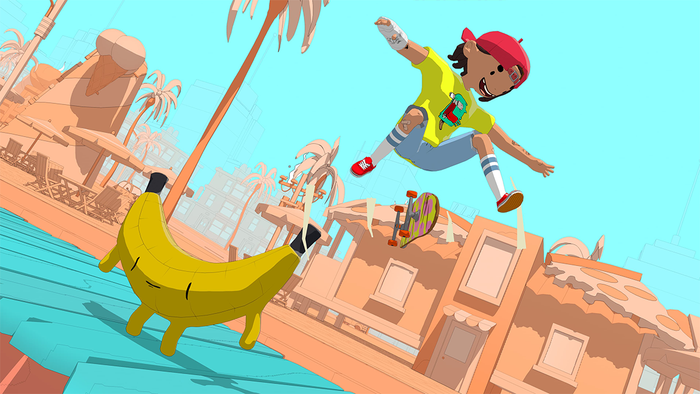About coexistence of physical and digital games in the future
An article about my views on the coexistence of physical games in the future. Should one or another be removed altogether or can the exist in harmony? This is what I think about it.

About coexistence of physical and digital games in the future
The big news today was definitely Microsofts decision to change their DRM and used game policy on Xbox One completely. This ignited a conversation between me and my friends about the meaning of digitizing the game market. And it got me thinking hard (and usually bad things happen when I do this). Why does it need to go one way or another? Is there no way for digital and physical markets of games to coexist in the unpredictable future? On this blog post I will share my opinions and view on the subject. Bear in mind that I am by no means an expert on the matters of economy or marketing and all of this is merely speculation on my part.
As I see it the two pieces of the market pie (digital and physical) should not only coexist, but also take benefit from each other. But to achieve this harmony, they need to specialize. I personally think that the same prices and deals don’t work in these quite essentially different distribution channels.
The challenges of digital distribution
The industry is inevitably moving into digital game libraries and infrastructures like the big boss of digital distribution: Steam. I think digital distribution will and should be the main source of income for game industry in the future. It is a cheap and easy distribution channel, and the money always goes to the developers (minus the cuts of publisher and marketplace). There is no need to worry about money lost through the sales of used games.
The digital world however differs from the physical world in quite a lot of ways. The product is and will always be tied to your account. This is why there should be a way to access your games through your account in multiple locations. The switching of an account should be as easy and quick as possible, or else the player will never want to give up his physical games collection.
You also won’t be able to lend your digital game to a friend or sell it forward. This lack of resell and material value should be taken into account when deciding the price of the product. The price NEEDS to be lower than that of a physical copy. A price cut of 20% should be enough encourage the purchase of a digital version. I think the current high point of price on new games today is bad for the industry. I believe that by cutting the price on digital games would benefit the developers in the end by greatly improving sales numbers and by reducing the amount of used games sold.
What does going digital mean to me as a consumer?
I believe there is a benefit about digital markets yet to be fully utilized: cutting the game to smaller affordable chunks. Why am I forced to buy the single-player campaign of the game, if I’m only interested in the multiplayer or vice versa? Why not sell the multiplayer for 20 $ and the single player for another. If it is solely a single player game, why not cut the story into smaller segments like the Walking Dead did? As a consumer I feel that buying a story pack of 10 $ four times does not hurt my wallet nearly as much as paying 40$ at once. Strange, huh?
Also for example making the first part of your game free-to-play to reel in more possible customers for the paid content is a valid business model on digital platforms, but it is downright immoral to ask extra money to unlock already existing playable content on a physical copy that has been already paid for. So the main strength of the digital platform is in the flexibility of payment models available.
And the special sales! Oh, all the wonderful discounts that digital distribution makes possible! I mean, just look at Steam. There are big discounts every day. Not to mention huge sales every Christmas and summer. You can buy fairly new games for a very low price (as low as -75%). These discounts would not be possible on physical market of games, and it is all because of used games. Because the developer does not need to worry about used games chipping away sales, they can safely lower the price of their product, and still gain revenue. These sales also spike up the visibility of the game and considerably boost sales of games that would not normally sell anymore. This way developers can keep getting income out of their games a while longer.
Then shouldn’t we stop selling physical games altogether?
To shortly answer the question above and you can quote me on this: “No, we should not stop selling physical copies of games”. Why? Because the market for physical games still has its benefits. First of all, it is good marketing. Showcasing your game on the shelves of stores is good advertisement. The games might pique an interest of a passerby, or remind another that the game he has been waiting for has been released. Also seeing those games (or even some awesome collector’s edition statue etc.) at a friend’s place has the effect of making me want to buy that game in question.
Physical games should be allowed to be a bit more expensive. But they need to be a working, whole and coherent package. There should be no day one DLC and both multiplayer and single-player games need to be fully included. The game must be installable and it must work without internet connection and/or updates. Since such a big part of the appeal of a physical game is in the fact that it will remain playable into unforeseeable future this is very important. Also all kinds of extras, such as cool instruction manuals and fabric maps increase the sentimental value of the game to the user, making it harder to resell.
To give a small part of the used games sales to the developer online passes or after-release DLC should be allowed. This way the developer will get paid more than once for one used copy. Also, once the player has DLC tied to his account, the selling of a game does not seem so attractive anymore.
So where did Microsoft go wrong with Xbox one?
Besides their bad PR (which was absolutely terrible to be honest), their mistake was to try to go only digital. Yes, they would be selling games on discs, but in essence after binding them to one account they would be digital games. This does not work for consoles.
For consoles there are two totally different target markets, digital and physical, both with their own benefits and drawbacks. If only had Microsoft included all their ideas for digital games library, without removing disc-based games out of the picture, the result could have been very different. Just by making their digital games cheaper, they would have created and ecosystem that would have been very attractive to all gamers. If Microsoft would have promised cheaper digital games, even the 100 $ price difference between PS4 and Xbox One would mean nothing.
These are just my musings and opinions on this topic that is on the minds of many of us interested in game industry. Nothing to get taken too seriously, but writing them down helps me analyze them in different light. What do you think about all this?
Read more about:
BlogsAbout the Author(s)
You May Also Like








